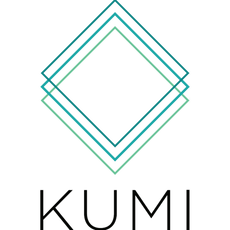Exploring Ylang-Ylang: A Comprehensive Guide

Are you curious about the captivating world of ylang-ylang? Discover the world of Ylang-Ylang with our comprehensive guide.
Ylang-ylang is renowned for its sweet, floral fragrance, which is often described as exotic and sensual. Its essential oil is commonly used in the perfume industry, adding a unique and captivating note to many high-end fragrances.
As the author, I have drawn upon my deep expertise and insights gained from extensive research and consultations with renowned experts in the field. Rest assured, the information you'll find in this guide is meticulously crafted to provide you with the most accurate and trustworthy insights into the world of Ylang-Ylang.
What Is Ylang-Ylang?
Ylang-Ylang, scientifically known as Cananga odorata, is a tropical tree native to Southeast Asia. It is renowned for its beautiful, fragrant flowers and its essential oil, which is widely used in perfumery and aromatherapy.
The Origins Of Ylang-Ylang
Ylang-ylang, scientifically known as Cananga odorata, is native to the rainforests of Southeast Asia. It thrives in countries like Indonesia, the Philippines, and Malaysia, where the climate is hot and humid. The name "ylang-ylang" is derived from the Tagalog word "ilang-ilang," which means "flower of flowers," a fitting description for its aromatic blooms.
Ylang-Ylang Varieties
There are different kinds of ylang-ylang essential oil, and each one smells different. These grades range from Extra, which has the most intense scent, to Fourth, Fifth, and Complete. The variation in aroma is due to the different stages of distillation.
Extracting Ylang-Ylang Essential Oil
The process of extracting ylang-ylang essential oil is meticulous and labor-intensive. It involves steam distillation of the freshly harvested flowers. Here's a quick summary of what needs to be done:
- Harvesting: Ylang-ylang flowers are hand-picked at various stages of maturity to capture the diverse fragrance notes.
- Steam Distillation: Flowers are put in a still, and steam is run over them. The essential oil-filled mist is then turned back into a liquid.
- Fractionation: The oil obtained in the first distillation is known as the "Extra" grade. Subsequent distillations yield lower-grade oils with different fragrance characteristics.
How To Use Ylang-Ylang Oil?
Ylang-ylang essential oil is known for its rich, floral scent, which is often described as sweet, exotic, and sensual. Its versatility makes it a valuable addition to various products and practices:
1. Aromatherapy

- Ylang-ylang is a staple in aromatherapy. Its calming and mood-enhancing properties make it ideal for relaxation and stress relief.
2. Perfumery

- Many renowned perfumes include ylang-ylang as a key ingredient due to its alluring fragrance.
3. Skincare

- Ylang-ylang oil is used in skincare products for its moisturizing and skin-soothing qualities.
4. Haircare

- It's also found in shampoos and conditioners, known for promoting healthy hair and scalp.
5. Aphrodisiac

- Ylang-ylang has a reputation as an aphrodisiac, known for its ability to enhance sensuality and intimacy.
What Are The Benefits Of Ylang-Ylang Oil?
Ylang-ylang offers a multitude of benefits, both for the body and mind. Here are some of the key advantages:
- Relaxation: It has a calming effect on the nervous system, reducing stress and anxiety.
- Improved Mood: Ylang-ylang is known to uplift spirits and alleviate symptoms of depression.
- Skin Health: Its antiseptic and hydrating properties benefit skin health, helping with issues like acne and dryness.
- Hair Care: Ylang-ylang oil can help your hair grow and make it healthier in general.
Precautions and Side Effects
While Ylang-Ylang oil is generally considered safe for most people, it's essential to keep the following precautions in mind:
- Avoid using undiluted Ylang-ylang oil directly on the skin, as it may cause irritation in some individuals.
- Before putting Ylang-Ylang oil on your skin, you should perform a patch test for sensitive skin or allergies.
- Consult a healthcare professional before using Ylang-Ylang oil if you are pregnant, nursing, or have any underlying medical conditions.
Final Thoughts
Ylang-ylang is not just a flower; it's a fragrant journey that can transform your daily routine and enhance your well-being. Whether you're using it for aromatherapy, skincare, or simply to enjoy its captivating scent, ylang-ylang has a place in the hearts of many, and it's a floral treasure worth exploring. So, enjoy the scent of ylang-ylang and find out how it can make your life more magical.
If you're interested in experiencing the wonders of ylang-ylang, you'll be delighted to know that you can easily find ylang-ylang essential oil at Kumi Oils. To browse our selection, simply visit our website: Kumi Oils.

